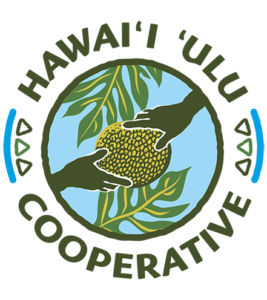ʻULU PRODUCTION PRIMER
Soil & Tissue Testing
Farmers draw on both traditional and modern practices to grow food sustainably. In this video, Dr. Noa Lincoln, Professor of Indigenous Crops and Cropping Systems at the University of Hawai‘i at Mānoa, discusses Indigenous techniques and current production recommendations for ‘ulu cultivation, focusing on nutrient demands, fertilization, pruning, and varietal selection.
Understanding Your Tree Needs Through Soil and Tissue Testing
Toward Standardized Leaf Sampling for Foliar Nutrient Analysis in Breadfruit
Read & digest this publication before sampling for leaf tissue analysis: Toward Standardized Leaf Sampling for Foliar Nutrient Analysis in Breadfruit.
When tissue sampling, use petioles harvested from the third fully open leaf down from the branch tip, at 4 evenly spaced intervals around the mid-canopy.
Soil Sampling: Hawaiʻi Farmers Partner with CTAHR
Soil sampling, especially when tracked over time, can help inform what amount of NPK and compost to use. These tests can also let growers know of excessive nutrient levels or deficiencies which can affect the uptake of other nutrients by your plants. Some growers fertilize conventionally, while others focus mainly on organic matter & soil biology – sampling/analysis can give a farmer a clear snapshot of the state of their farm.
Contact UH CTAHR Extension Office to submit soil samples for testing; see the link below for more information on the pricing and procedures to deliver your samples.
NEXT: Fertilization Strategies
